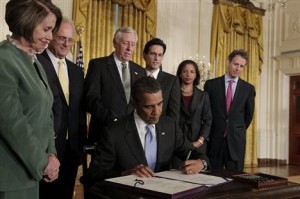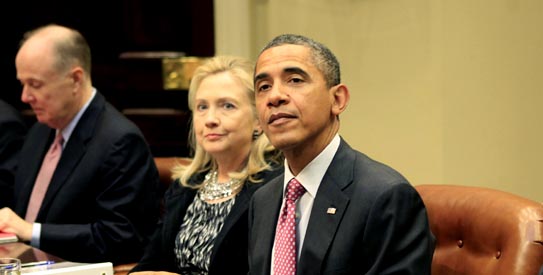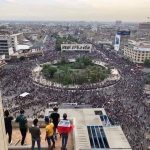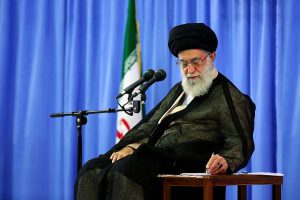 This past week, a couple of articles have been published that hint at the central incoherence of the United States’ Iran policy. The arguments are not necessarily new, but they show in concrete terms how the stated objective of US sanctions, which is to change the calculations and behavior of Iran’s leaders, is undermined by the same sanctions that end up weakening – at times even endangering – the domestic forces presumably required to leverage the sanctions’ power and result in a change of behavior.
This past week, a couple of articles have been published that hint at the central incoherence of the United States’ Iran policy. The arguments are not necessarily new, but they show in concrete terms how the stated objective of US sanctions, which is to change the calculations and behavior of Iran’s leaders, is undermined by the same sanctions that end up weakening – at times even endangering – the domestic forces presumably required to leverage the sanctions’ power and result in a change of behavior.
Virginia Tech economist Djavad Salehi-Isfahani explains how the sanctions regime is threatening Iran’s bond to the global economy, not only through the straight-jacketing of the middle class and private sector, which is the promoter of that bond, but also hindering the point of view that is supportive of that bond. In other words, instead of helping to promote a developmental state whose behavior is moderated by the multi-faceted links created, the sanctions regime strives to sever those links based on the claim that severing those links will eventually make the Islamic Republic a better global citizen!
James Ball’s article in the Washington Post is even more damning. The domestic actors striving to change the behavior of the Iranian state, it turns out, do not merely constitute unfortunate collateral damage. They are the direct recipients of policies that deny them protective tools, leaving them vulnerable to significantly more powerful entities which always find ways to get around sanctions and access instruments of repression.
These arguments are slightly different from the suggestion that sanctions are a form of collective punishment with the Iranian population ending up as the victims of Iranian leaders and foreign powers locking horns. The sanctions policy is assessed in the way that all policies should be assessed: what is the policy intended to do, who is supposed to benefit from it or be harmed by it, and are the policy instruments aligned with the policy objectives. In this case, the evidence offered suggests that they are not.
There are, however, other ways of addressing the question of inconsistency between instruments and objectives. One way is to ignore the inconsistency while giving rhetorical lip service to the sublime cause of the Iranian people freeing themselves from the yoke of dictatorship. The objective of this policy, it is said, is to change the behavior of the Iranian government. External pressure will also eventually payoff on its own. No need to worry about what sanctions will do to Iran’s social fabric, economy, and the private sector in the meanwhile. Sanctions are both feasible and effective given American muscularity and the Iranian historical tendency to give in to overwhelming pressure eventually. This formulation is apparently based on a joke Iranians make about themselves: “Iranians never give in to pressure unless it is lots of pressure.” As for those freedom-loving Iranians, they’ll find a way to foment change in Iran and aim it in a favorable direction even in spite of us making their path more difficult because of their incredible desire and energy to be free.
The problem with this argument lies first in giving a lofty role to desire (as opposed to instruments for fulfilling that desire) and second, in refusing to acknowledge that in no country is there “a people” with a collective desire. Iran, like elsewhere, is a country consisting of a multiplicity of interests, desires, power centers, and a differentiated population with vastly different means of access to resources. Democracy, like elsewhere, will not arise out of Iranian collective desire but out of negotiations and accommodations among these multiple interests. This very basic point is not rocket science – especially given the US’ own experience with democracy. The refusal to understand this point reveals either the shallowness of the commitment to any kind of democratic project in Iran or a naïve hope that external pressure will delegitimize the regime and open a path for a more democratic Iran.
But perhaps I am searching for coherence in the wrong places. The US’ Iran policy is not that incoherent if the objective is not aimed at changing the calculus of the Iranian government and rather intended to simply harass, isolate, or even destabilize Iran. In fact, one can argue that the Obama Administration, unlike the Bush Administration, has found a perfect formula for this intent, which is also a good fit for the way the American bureaucratic structure works.
Rather than confronting Iran with an all-out sanctions regime, the US has settled on an escalating sanctions regime. Every couple of month or so, it announces a new set of sanctions to keep the Islamic Republic off balance and in search of new ways to get around sanctions. Of course, this is partly necessitated by the reality of the oil market. The complete shut off of Iran’s oil exports would have had a drastic effect on oil prices. But in any case, an escalating sanctions regime is a much better tool for harassment – or what some in Iran call psychological and economic warfare – than an all-out sanctions regime.
The Iraqi sanctions regime is a good example of why going for an all-out sanctions regime is not a good instrument; after a while, the sting wears off and ways are found around it. Even Donald Rumsfeld, by July 2001, was suggesting that one US policy option was to “publicly acknowledge that sanctions don’t work over extended periods and stop the pretense of having a policy that is keeping Saddam in the box when we know he has crawled a good distance out of the box”.
An escalating sanctions regime, on the other hand, assures that the initiative remains in US hands and the Islamic Republic – and by implication the people who live and work in the Islamic Republic – are kept off balance. It also has the added value of making a whole lot of people in various bureaucracies work hard for their paycheck.
The folks at the Treasury Department strive hard to find new ways and new entities to sanction; folks in the State Department work hard to get exemptions for allies (and even non-allies) who presumably have done well in reducing their oil imports from Iran exactly at the same time that the Treasury is tightening the noose in some other areas. Folks in the Department of Energy also work hard to determine exactly how much of Iranian oil can be kept off the market before prices rise.
And the game continues. Just watch to see what happens after the six-month exemption period is up for Japan, South Korea, and…
The US’ Iran policy cannot be considered incoherent if the policy objectives and the instruments have become the same. It can still be considered immoral for trying to add to the economic woes of a good part of the Iranian population – irrespective of the fact that the Iranian government is most responsible for those economic woes – particularly at a time when so many people in the world are already suffering from unemployment and economic downturn. But it is not incoherent. It is intended to harass and it is doing so in a calculated and now rather routine, bureaucratic way. Weaning from routines and habits will be hard.






United States has imposed oil embargo on six countries during the last 35 five years.Nigeria,Venezuela,Angola,Libya,Iraq and Iran were sanctioned one way or the other and for some periods.This is on top of oil and energy sanction that the ex-Soviet Union or Rumania underwent before the break-up.This shows that the United States has actually a rich sanction culture history.During the 1990’s nearly one-third of total world oil reserves was under some kind of embargo.In fact I believe that the US employs oil and gas sanction as a means of managing world oil and gas supply.United States is in fact partly responsible for current high gas prices.Inadequate investment on vast oil and gas reserves that include most of the Middle East and Iran deprived the global oil market from sufficient supply and moderate price of oil and gas.As for Iran like perhaps all other sanctioned countries,imposition of restrictions by the US has actually brought about such windfall profits in the for of rents for few individuals and companies that in my opinion they will fight hard to keep sanction in place for as long and as hard as possible.No doubt people suffer but those who are the real targets of sanction have ammased wealth that could have never imagined of even a year ago.
The question should be “Why are there sanctions against Iran?”
What has Iran done to justify the present sanctions against the country, and its people? The answer is simple – nothing!
All of the US intelligence agencies, even the Israeli intelligence agencies, state that Iran does not have a nuclear weapons programme. Iran hasn’t attacked another country in centuries. Iran isn’t threatening a first strike attack on any other country.
Iran is attempting to create its own nuclear energy programme, something that is entirely legal. It has signed the NNPT, it is swarming with IAEA inspectors, it can’t start a nuclear weapons programme without such actions being immediately observable – so, what is Irans’ crime that it deserves such restrictive sanctions?
Bottom line – America is becoming a tremendously corrupt country. Every public policy coming from us directed to the rest of the World, rests upon lies and hidden self-interest.
The policy is only incoherent if you make the mistake of believing the public utterances of the US Government.
If you believe what they say, go explore the wikileaks of diplomatic cables and compare to public statements. And that’s only if for instance the constant claims that Iraq was developing WMD’s didn’t convince you that the US government is not someone you can rely on to tell you the truth. Or heck, for that matter, go ask someone of native American descent if the US Government can be believed.
To me, any rational person puts aside what the US Government officially says. It is clearly not to be believed nor trusted. Instead, just look at what really happens, and realize that a lot of very smart people are spending a lot of money to both plan and then provide these outcomes. The only sane point of view is to assume that the US government is doing exactly what it wants to do and is obtaining the results it wants to obtain.
Now, you can start to understand US policy in the world. And the policy appears to be to force Iran into a war with the US in exactly the same way the US Government got the war in Iraq that it so badly wanted.
The only way to stop this is to elect a new government in 80 days.